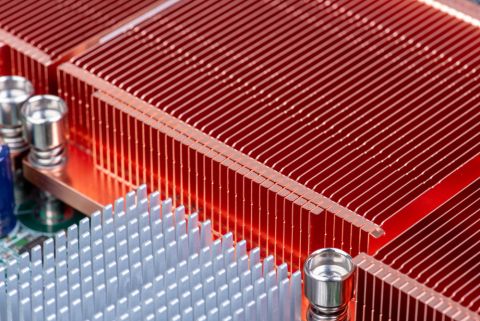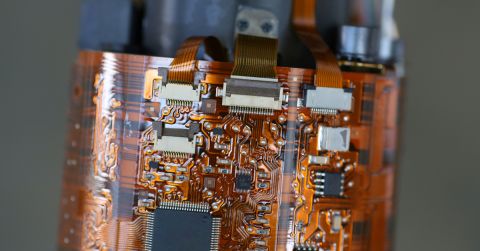Edgewater Research: Electronics Supply Chain Weekly Digest June
June 16, 2023
Important Disclosures in the Appendix
A weekly collection of news summaries, survey results and channel insights, and report summaries from Edgewater Research
DATAPOINT OF THE WEEK:
China passenger car production and wholesales increased 13% Y/Y in May, in line with typical seasonality, according to China Automotive Association. On Y/Y, production/production sales increased 18% and 26% respectively. NEV production increased 11% M/M and 50% Y/Y, in-line with the trends from recent months, while NEV sales increased 13% and 60% Y/Y. Commercial vehicle production declined 10% M/M. On a Y/Y basis commercial vehicle production increased 43% Y/Y but the level remained below pre-COVID average. Passenger vehicle wholesale inventory declined 4% M/M but remained towards the high-end of historical range.
Key Takeaways:
- We aggregated data from 60 companies totaling $272B in inventory across the global tech supply chain.
- Total inventory days at 71, +11% Q/Q, +12% Y/Y, and +30% vs. pre-COVID C1Q19 (was +57% C4Q22 vs. C4Q19). The encouraging narrowing of growth off pre-COVID base has been driven by Compute OEMs lowering inventory by ~$7B (or 25%) Y/Y.
- More than offsetting the OEM declines are record inventory levels in the distribution channel and at the component suppliers. Feedback in our research suggests some early signs of concessions in pricing or NCNRs from component suppliers; we see risk concessions grow and factory utilizations fall further as suppliers manage through lower visibility and slower demand.
- Notable areas/companies with sharp Y/Y inventory growth incl. Apple (+$2B or 37%), Cisco (+56%), Arista, and Juniper (each up 140%+). Qualcomm, Hynix, Micron, AMD, Analog Devices, Microchip, NXP, and TI each have seen their dollars/day grow 45%+ Y/Y.
Auto/Transportation
Neo – Chinese NEV maker NEO announced it would lower prices for all its models by 6-9% from June 12th, including for its new SUVs ES6 and ES8. NEO also announced it will end the free battery swapping services to new buyers.
China Commercial EVs – By 2025, sales of electric heavy trucks in China are expected to reach 190,000 units, with a penetration rate of about 16%, according to China Automotive Technology and Research Center (CATARC). The report adds that by 2030 EV commercial truck penetration is expected to reach 35%. This compares to 25,000 units or 5% of NEV penetration in 2022.
China Auto Retail Sales – The Chinese passenger car market was weak in the first two weeks of June, while the new energy vehicle (NEV) market performed slightly better. From June 1 to June 11, retail sales of passenger NEVs in China were 160,000 units, up 18 percent Y/Y but down 4 percent from the same period last month, according to data released today by the China Passenger Car Association (CPCA). YTD, retail sales of passenger vehicles are up 3% Y/Y to 8.057M.
China NEVs – China has launched a nationwide promotion covering the rest of the year to boost auto consumption, which is critical to economic growth. The Ministry of Commerce (MOC) announced specific arrangements in a notice issued today on a campaign to promote auto consumption, including holding auto festivals in 100 cities and promoting new energy vehicle (NEV) consumption in rural areas. The MOC will promote local governments and enterprises to introduce initiatives to support auto consumption, use local financial resources, and encourage financial institutions to introduce auto credit financial support measures, according to the notice.
Ford/GM – New vehicle demand from U.S. retail and commercial customers is outpacing expectations, two top executives from Ford and GM said on Thursday. "If the consumer remains at this strength, we could significantly outperform what we said" about full-year performance, GM CFO Paul Jacobson told investors.
Germany Auto Sales – German new-vehicle registrations rose 19 percent in May, helped by strong demand for electric cars. Registrations of new passenger cars were 246,966 last month, according to data from the KBA motor transport authority. Sales of full-electric cars increased 47 percent, continuing their bounce back after falling 13 percent in January when government subsidies for batteryelectric cars were significantly reduced. EVs had a 17.3 percent market share in May. Gasoline cars are still the biggest sellers in Germany, with sales up 18 percent for a 35.5 percent market share. Diesel sales rose 3.6 percent for a 17.6 percent share.
Tesla – Tesla is in talks with the leaders of the regional government of Valencia in Spain to build a car factory, the Spanish newspaper Cinco Dias reported. The report adds that Tesla could invest nearly $5B in the plant.
US Auto Inventory – US inventory of new passenger vehicles continued to increase in May says Cox Automotive, despite the stronger retail sales trend. According to Cox inventory increased 3% M/M to 1.96M which is 73% higher than a year ago, though still 40% below pre-covid levels of ~3.5M. As a result days of inventory increased to 55 which is slightly below the 60 day mark, which is considered normal. Avg transaction price in May declined M/M to $47,172 from $44,409. “The month of May ended on a slightly less positive note than when it started, suggesting some weakening of demand,” said Charlie Chesbrough, Cox Automotive's senior economist. “Sales for new vehicles began to decline near the end of the month, after rising throughout the month as supply continued to increase.
US New Vehicle Affordability – New-vehicle affordability improved slightly again in May says Cox Automotive. The number of median weeks of income needed to purchase the average new vehicle in May declined to 42.9 weeks from an upwardly revised 43.0 weeks in April and the peak of 45 weeks in Feb. Cox estimates the average monthly payment stood at $768, relatively unchanged from $767 in April.
Industrial
Siemens – Siemens announced it will invest €2B to expand its manufacturing capacity for factory automation equipment in Singapore and Chengdu, China.
Semiconductors
AMD – AWS is considering using new artificial intelligence chips from AMD, though it has not made a final decision, an AWS executive told Reuters. The remarks came during an AMD event where the chip company outlined its strategy for the AI market.
GlobalFoundries – GlobalFoundries and Lockheed Martin on Monday announced their partnership to secure domestic semiconductor supply for defense systems.
Foundry – TrendForce reports that the global top 10 foundries witnessed an 18.6% Q/Q decline in revenue during 1Q23. This decline—amounting to approximately US$27.3 billion—can be attributed to sustained weak end-market demand and the compounded effects of the off-peak season. The rankings also underwent notable changes, with GlobalFoundries surpassing UMC to secure the third position, and Tower Semiconductor surpassing PSMC and VIS to claim the seventh spot. TrendForce expects a continued decline in revenue for the top 10 foundries in Q2, although at a slower rate than in 1Q. While supply chains are expected to gradually build inventory in response to peak season demand in the second half of the year, the accumulation of inventory and slow consumption have currently dampened customer attitudes toward stockpiling.
Foundry – Lin Jiannan, chairman of Taiwan Sembcorp, a semiconductor silicon wafer factory, said during a shareholder’s meeting that market demand continued to be weak in the second quarter, and challenges still exist. In the second half of the year, logic and customers still have problems with excessive inventory. However, Taiwan Sembcorp will continue to promote the expansion of the 12inch new factory.
Intel – Intel and the German government are close to an agreement for the chipmaker to receive 9.9 billion euros ($10.83 billion) in subsidies, up from a previously agreed 6.8 billion, Handelsblatt reported on Thursday, citing government sources. Final negotiations will take place this weekend, the newspaper reported, with Intel Chief Executive Pat Geisinger and government representatives to sign an agreement in Berlin on Monday.
Intel – Intel plans to invest up to $4.6 billion in a new semiconductor assembly and test facility near Wrocław, Poland, as part of a multi-billion-dollar investment drive across Europe to build chip capacity, it said on Friday.
Micron – Micron said on Friday it was committed to China and would invest 4.3 billion yuan ($603 million) over the next few years in its chip packaging facility in the Chinese city of Xian. The announcement came on the same day Micron announced that approximately half of its China customer revenue is at risk due to failed cybersecurity review from China’s Cybersecurity Administration which has resulted in the government entity blocking sales of Micron products in certain end markets like infrastructure.
Semi Capacity – Global 300mm fab equipment spending for front-end facilities next year is expected to begin a growth streak to a US$119 billion record high in 2026 following a decline in 2023, according to the latest report from SEMI. Strong demand for high-performance computing, automotive applications and improved demand for memory will fuel double-digit spending in equipment investments over the three-year period, says the report. After the projected 18% drop to US$74 billion this year, global 300mm fab equipment spending is forecast to rise 12% to $US82 billion in 2024, 24% to US$101.9 billion in 2025 and 17% to US$118.8 billion in 2026. Foundry is projected to lead other segments in equipment spending at US$62B in 2026, an increase from US$44.6 billion in 2023, followed by memory at US$42B, a 170% increase from 2023. Analog spending is forecast to increase from US$5B this year to US$6.2B in 2026. The microprocessor/microcontroller, discrete (mainly power devices), and optoelectronics segments are expected to see spending declines in 2026, while investments in logic is forecast to rise.
Semi equipment – The US administration plans to allow top semiconductor manufacturers from South Korea and Taiwan to maintain and expand their existing chip-making operations in China without U.S. reprisals, according to recent remarks by a senior Commerce Department official. Alan Estevez, undersecretary of commerce for industry and security, told an industry gathering last week that the administration intended to extend existing exemptions from a U.S. export-control policy designed to restrict companies from selling chips and chip-making equipment to China, according to several attendees.
Semi Materials – Global semiconductor materials market revenue grew 8.9% to $72.7 billion in 2022, surpassing the previous market high of $66.8 billion set in 2021, says SEMI. Wafer fabrication materials and packaging materials revenue in 2022 reached $44.7 billion and $28.0 billion, respectively, increasing 10.5% and 6.3%. The silicon, electronic gases, and photomask segments showed the strongest growth in the wafer fabrication materials market, while the organic substrates segment largely drove packaging materials market growth.
TI – TI announced it has purchased buildings next to its existing facility in Kuala Lampur, Malaysia and plans to build two new assembly and test plants. Construction is expected to start later this year, with production to begin as early as 2025. The two new back end facilities are part of TI’s plan to have more than 90% of its back capacity internally by 2030.
TSMC – TMSC announced the opening of its advanced backend Fab 6, the company’s first all-in-one automated advanced packaging and testing fab to realise 3DFabric integration of front-end to back-end process and testing services. The fab is prepared for mass production of TSMCSoIC (System on Integrated Chips) process technology. The fab enables TSMC to allocate capacity for its 3DFabric advanced packaging and silicon stacking technologies, such as SoIC, InFO, CoWoS and advanced testing, improving production yield and efficiency. TSMC estimates in a press release that the fab will have the capacity to produce more than 1 million 12-inch wafer equivalent 3DFabric process technology per year, and more than 10 million hours of testing services per year.
APPENDIX
We Nik Todorov, Dennis Reed, and Sean Muir hereby certify that the views expressed in this research report accurately reflect our personal views about any or all of the subject securities referred to in this research report. We certify that no part of our compensation was, is or will be directly or indirectly related to the specific recommendations or views expressed in this research report. The analyst(s) responsible for the preparation of this report have no ownership stake in this company. Edgewater Research Company provides no investment banking services on this or any company . Proprietary research and information contained within which forms the basis for findings or opinions expressed by Edgewater Research Company may be used by Edgewater Research Company for other purposes in the course of compensated consulting and other services rendered to third parties. The information transmitted by this email is intended solely for the person or entity to which it is addressed. If you are not the intended recipient of this message, be aware that any use, review, retransmission, distribution, reproduction or any action taken in reliance upon this message is strictly prohibited. If you received this in error, please contact the sender and remove the material.
Nik Todorov, Dennis Reed, Sean Muir; Edgewater Research












 Back
Back

